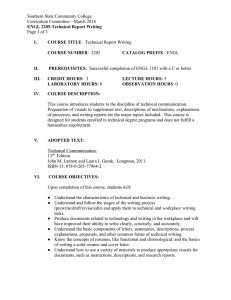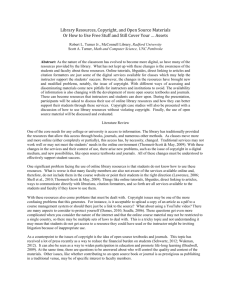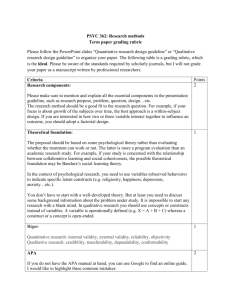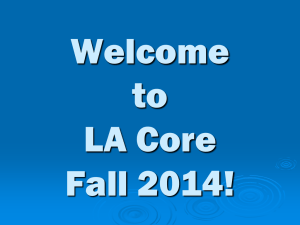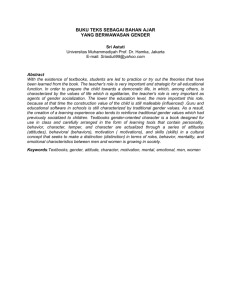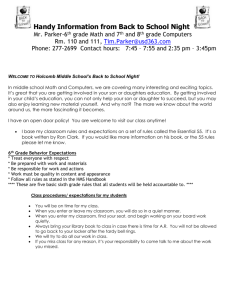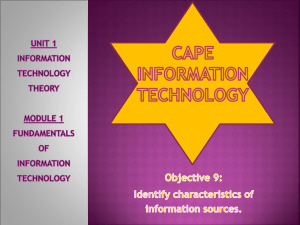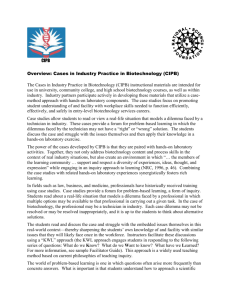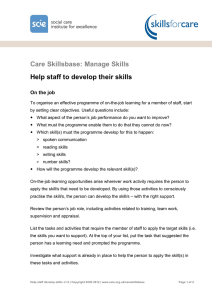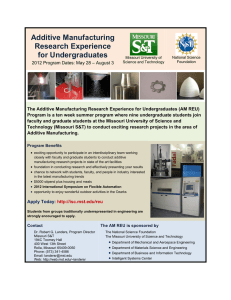Technical Writing and Communication
advertisement
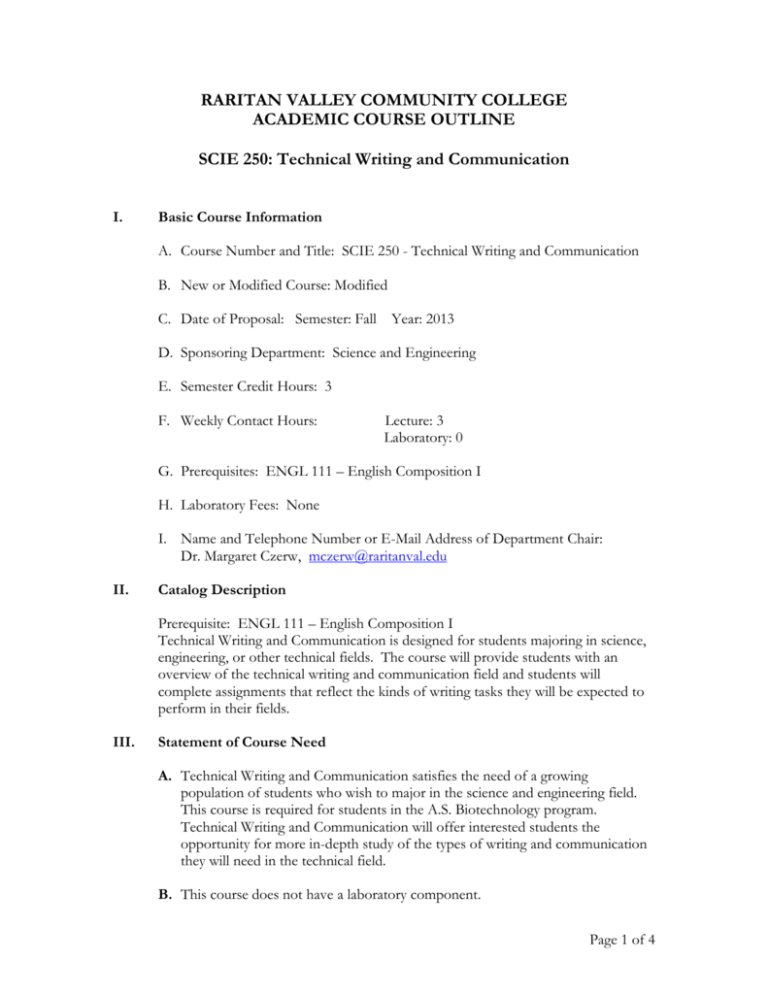
RARITAN VALLEY COMMUNITY COLLEGE ACADEMIC COURSE OUTLINE SCIE 250: Technical Writing and Communication I. Basic Course Information A. Course Number and Title: SCIE 250 - Technical Writing and Communication B. New or Modified Course: Modified C. Date of Proposal: Semester: Fall Year: 2013 D. Sponsoring Department: Science and Engineering E. Semester Credit Hours: 3 F. Weekly Contact Hours: Lecture: 3 Laboratory: 0 G. Prerequisites: ENGL 111 – English Composition I H. Laboratory Fees: None I. Name and Telephone Number or E-Mail Address of Department Chair: Dr. Margaret Czerw, mczerw@raritanval.edu II. Catalog Description Prerequisite: ENGL 111 – English Composition I Technical Writing and Communication is designed for students majoring in science, engineering, or other technical fields. The course will provide students with an overview of the technical writing and communication field and students will complete assignments that reflect the kinds of writing tasks they will be expected to perform in their fields. III. Statement of Course Need A. Technical Writing and Communication satisfies the need of a growing population of students who wish to major in the science and engineering field. This course is required for students in the A.S. Biotechnology program. Technical Writing and Communication will offer interested students the opportunity for more in-depth study of the types of writing and communication they will need in the technical field. B. This course does not have a laboratory component. Page 1 of 4 C. This course will transfer to academic degree programs at four-year institutions. This course does not typically transfer as a specific General Education course or a specific program requirement. This course is similar to the Technical writing courses offered at the following institutions: Rutgers University, William Paterson University and Rowan University. IV. Place of Course in College Curriculum A. B. C. D. V. Free Elective This course does not serve as a General Education course. This course meets a program requirement for the A.S Biotechnology Program. To see course transferability: a) for New Jersey schools, go to the NJ Transfer website, www.njtransfer.org; b) for all other colleges and universities, go to the individual websites. Outline of Course Content A. Introduction B. Correspondence 1. Drafting letters 2. Memos 3. E-mails C. Visual elements 1. Graphics 2. Charts 3. Graphs D. Graphic design 1. Layout of pages 2. Web screens E. Technical writing 1. Reports 2. Empirical research report 3. Feasibility report 4. Progress report 5. SOPs VI. Educational Goals and Learning Outcomes A. General Education Learning Outcomes: At the completion of the course, students will be able to: 1. Demonstrate effective technical writing skills in a varied forms such as producing reports, forms and memos (GE-NJ 1) 2. Use a variety of resources to research and produce a scientific report (GE-NJ 1,3 IL) 3. Work on a group project and present their findings (GE-NJ 1) Page 2 of 4 4. Use quantitative reasoning, including interpretation of data to produce written reports (GE-NJ 1,3) B. Course Learning Outcomes: See above VII. Modes of Teaching and Learning Given the goals and outcomes described above, the primary formats, modes, and methods for teaching and learning that may be used in the course are: A. lecture/discussion B. small-group work C. guest speakers D. student oral presentations E. student collaboration VIII. Papers, Examinations, and other Assessment Instruments Given the outcomes described above, the following assessment methods may be used: A. technical reports B. journals C. exams D. quizzes IX. Grade Determinants The following may be used to determine the final grade: A. report projects B. exams C. presentations X. Texts and Materials The following types of course materials may be used: A. suggested textbook: Technical Communication by Paul V. Anderson Cengage Learning, 7th edition (2011) ISBN-10: 1428263934 ISBN-13: 9781428263932 B. journals C. film and video D. web resources (Please Note: The course outline is intended only as a guide to course content and resources. Do not purchase textbooks based on this outline. The RVCC Bookstore is the sole resource for the most up-to-date information about textbooks.) Page 3 of 4 XI. Resources The library has the resources necessary for the students to t the assignment necessary for this course. Page 4 of 4
